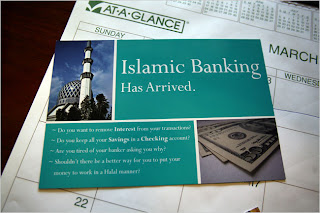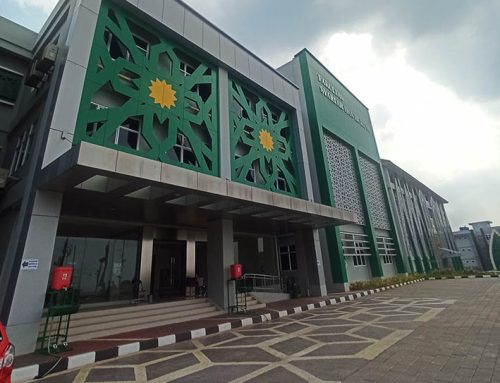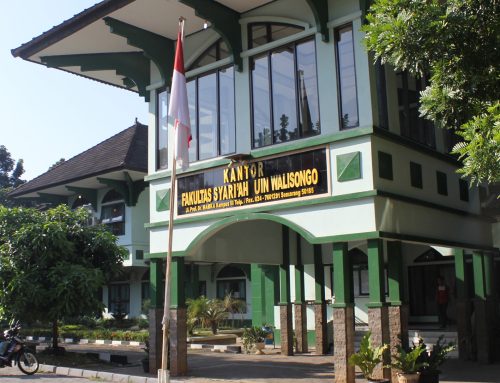By : Imam Yahya*)
The development of Islamic banking in Indonesia grows widespread both in quality or quantity. This rapid grow is supported by three factors. First, moslems in Indonesia is a potensial market of Islamic banking. Many moslems in indonesia has stored the money not only base on their emitional religiousity, but also business profits and principles of Islamic economics. The 88 percent of Indonesian population (reach 230 milion people) are moslems. Beside that in several regent in Indnesia, many non-moslems choose syariah banking as alternatif banking. Second, islamic banking give good services to all customers. One of this services is applying the standarization of information technology in islamic banking system, such as mobile banking, islamic credit card and other internet banking system. Third, the lack of conflict in Islamic banking. The Numbers of Islamic economic disputes are resolved by religious courts are still very small. Based on data obtained from the Sub Directorate Sharia Institution and Civil Case Management of Ministery of Law and Human Right, during 2011 the shariah economic case that goes to the religious courts numbered only five. Three things that make the development of Islamic banks in Indonesia more promising, although in national level the assets of Islamic banks is still far compared with a conventional bank. Yet as the institution of sharia, Islamic banks still consider to the possibilities of conflic from internal and external influences. One of the external influences such as the rapid influence of information and technology is the potential problem to cause disputes within Islamic banking. Internet Banking Internet banking is a ussual facility provided to customers,to facilited them in doing the bank actifities such as check, accounts transfer, transfer, and pre-purchased vouchers. In the world of Internet banking technology (virtual world) started a trend and has even become standards. Internet Banking began to emerge as one of the service of the Bank. Service (the service) is starting to become a demand from some customers of the bank, as well as servicing ATM and phone banking or SMS banking. The demands of Internet banking is coming from customers who want fast service, safe, convenient and inexpensive available at any time (24 hours / day, 7 days / week) and can be accessed from anywhere be it from HP, Computer, laptop / note book, PDA, and so on. All demand can be supplied by the internet banking services. But along with an effective internet banking service and efficience for Islamic banks and customers, does not guarantee one hundred per cent well without any problems. Islamic banking disputes will arise as a consequence of a new system which not perfect. To anticipate the emergence of Islamic banking disputes that will require a different treatment with conventional banks, the government set up regulations Act No.3 of 2006 on the religious court (completion of the litigation) and Law no. 30 of 1999 on Arbitration and Alternative Dispute Resolution, and Law. 21 of 2008 on Islamic Banking. This law describes the position of the three institutions of dispute settlement; Religious Courts, Mediation, Arbitration in the Arbitration Board of the National Sharia (Basyarnas). The diversity of Islamic economic dispute resolution options (courts, mediation, arbitration) make that syariah banking dispute is not much ended in the Religious. Non-litigation dispute resolution is more benefit than litigation institution. Alternative dispute resolution in Islamic Banking In the settlement of Shari’ah economic disputes, there are two models of dispute resolution, namely through litigation in courts and non-litigation process. While the non-litigation pathway include alternative forms of dispute resolution (Alternative Dispute Resolution) and arbitration. A. Litigation Settlement Religious courts have absolute authority to settle Shariah economy. It is based on the provisions of Article 49 of Act No.3 of 2006 which states that: “The duty and authority of religious Court is to examine, decide, and resolve the matter at the first level of the people which are Muslims in the areas of marriage, inheritance, his testament grants, waqaf, zakat, infaq, sadaqah, and shari’ah economy. “. The disputes in the field of Syariah banking in the authority of Religious Court are namely: a. Disputes in the field of Islamic economics between financial institutions and Islamic financial institutions with their customers. b. Disputes in the field of Islamic finance among financial institutions and Islamic finance; c. Disputes in the field of Islamic finance among the people who are Moslems. Nevertheless, Religious Courts which have been given the authority to examine, hear and resolve the Shari’ah economic case, the substantive law and the formal law needs to be corrected. The Birth of Law. 21 of 2008 on Islamic Banking and Regulation Supreme Court. No 02 of 2008 on the Compilation of Islamic Economic Law (KHES) equip and provide for the judge in performing his new duties, so it is necessary to breakthrough the law in order to meet the development needs of the community law. Laws must be enforced in order to keep the legal authority goes well, especially Law No. 3/2006 on the religious court. This law clearly states that the Islamic banking disputes is absolute competence of the religious court. B. Non litigation Settlement In Indonesia, the settlement of disputes through litigation in non line set in one article, ie Article 6 of Law no. 30 of 1999 on Arbitration and Alternative Dispute Resolution. 1) Arbitration The idea of establishment of Islamic arbitration institution in Indonesia, beginning with a meeting of experts, Islamic scholars, lawyers, clerics and scholars to exchange ideas about the need for Islamic arbitration institution in Indonesia. This meeting promoted by MUI on 22 April 1992. After holding several meetings were held several times and after improvements to the design of organizational structures and procedures for examining finally on October 23, 1993 has been inaugurated Arbitration Muamalat Indonesia (BAMUI), now renamed the National Sharia Board of Arbitration (BASYARNAS) which was stated in the National Workshop MUI in 2002. With the enactment of Law no. 30 of 1999 on Arbitration and Alternative Dispute Resolution, through Article 81 of the law expressly repeal the three kinds of provisions from the date of enactment. BASYARNAS as a permanent institution established by the MUI serves resolve possible disputes arising in relation Muamalat trade, industry, finance, services. Establishment of this institution was originally associated with the establishment of Bank Muamalat Indonesia and Sharia Micro Finance. 2) Alternative Dispute Resolution Alternative dispute resolution is only set in one article, namely article 6 of Act No.30 of 1999 on arbitration and Alternative Dispute resolution describes the dispute settlement mechanism. Dispute or difference of opinion in the field of civil Islam can be resolved by the parti
es through the Alternative Dispute Resolution in good faith based on the exclusion of a litigation settlement. If the dispute is not resolved, then the written agreement of the parties, disputes or differences of opinion resolved through the help of one or more of an expert advisor or through a mediator. The model developed by the Alternative Dispute Resolution is quite ideal in terms of concept, but in practice it is also not ruled out. If the path of arbitration and alternative dispute resolution can not resolve the dispute, the courts or the litigation path is the last wicket as the breaker case. Congclution Disputes in Islamic banking is a necessity, especially as the development of Islamic banks face the development of IT such as internet banking system and the application of the National Payment Gateway. As now in progress, the handling of disputes in the Islamic banking must go through the religious court in accordance with Law no. 3 of the religious court, is based on the provisions of Article 49 of Act No.3 of 2006 jis Act No.30 of 1999 and Act 4 of 1998, and Act 21 of 2008 on Islamic Banking. The lack of cases handled by the Syariah Banking, not because there is no dispute, but because of the many options in resolving economic disputes sharia (litigation and non-litigation), through mediation, arbitration and judicial institutions.
es through the Alternative Dispute Resolution in good faith based on the exclusion of a litigation settlement. If the dispute is not resolved, then the written agreement of the parties, disputes or differences of opinion resolved through the help of one or more of an expert advisor or through a mediator. The model developed by the Alternative Dispute Resolution is quite ideal in terms of concept, but in practice it is also not ruled out. If the path of arbitration and alternative dispute resolution can not resolve the dispute, the courts or the litigation path is the last wicket as the breaker case. Congclution Disputes in Islamic banking is a necessity, especially as the development of Islamic banks face the development of IT such as internet banking system and the application of the National Payment Gateway. As now in progress, the handling of disputes in the Islamic banking must go through the religious court in accordance with Law no. 3 of the religious court, is based on the provisions of Article 49 of Act No.3 of 2006 jis Act No.30 of 1999 and Act 4 of 1998, and Act 21 of 2008 on Islamic Banking. The lack of cases handled by the Syariah Banking, not because there is no dispute, but because of the many options in resolving economic disputes sharia (litigation and non-litigation), through mediation, arbitration and judicial institutions.
*) This paper International Conference “PAYMEN GATEWAY AND INTERNATIONAL BANKING SYSTEM IN ISLAMIC ECONOMIC SYSTEM AND UNIVERSAL ECONOMIC LEGAL SYSTEM PERSPECTIVE”, conducting on 13-14 Juni 2012 by Faculty of Law UNISSULA Semarang





Leave A Comment